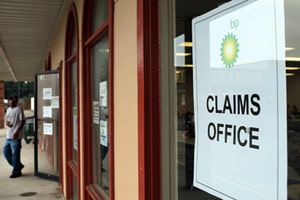For more than a year, oil giant BP has waged a massive public relations battle to convince Americans that the company has been bamboozled by the oil spill claims process relating to the 2010 Deepwater Horizon oil rig blowout.
This BP PR campaign has involved full-page newspaper ads paid for by the company suggesting it is being swindled by Gulf Coast residents who were not affected by the oil spill. BP spokesepeople have appeared in the media to argue that the claims process has been “absurd.” And evidence even suggests that the company has employed online “trolls” to attack legitimate victims on social media websites.
BP has spent hundreds of millions of dollars on this PR blitz, all because they want to avoid paying out any more claims to Gulf Coast residents. But the problem the company is running into now is that independent investigations have shown that the claims process is not rife with fraud, as BP has claimed.
At least 99.5% of the claims that have been filed are legitimate, according to an audit.
BP hoped that the audit, conducted by Chicago-based McGladrey LLP, would prove that the company was being taken advantage of by both greedy oil spill victims, as well as claims administrator Patrick Juneau. Unfortunately for the company, the audit showed that the only people being hustled were the ones falling for BP’s smear campaigns.
As if the audit wasn’t a big enough blow to the company, a report from Auburn University surfaced this week showing that oil from the Deepwater Horizon spill is still trapped within Alabama beaches.
As The Huffington Post reports:
A team from Auburn collected oil on Alabama’s coast as recently as August. The research found that oil is still trapped in the sand, mostly as tar balls.
Test results also show the oil degrades much slower when it’s submerged than when it’s exposed to air or water. The report says the latest findings and other research show that oil could remain an ecological threat for years.
The significance here is that, with the oil still trapped in beaches along the Gulf Coast, BP could end up on the hook for future economic losses to businesses along the Gulf Coast. This is exactly what the company has been afraid of, and why it was hoping the results of the audit would swing the pendulum in their direction.
Believe it or not, BP still has an ace up its sleeve that could derail the entire claims process. In fact, it has two aces: Supreme Court Justices Antonin Scalia and Samuel Alito.
BP has appealed the entire oil spill settlement to the U.S. Supreme Court, hoping that the justices will either temporarily halt the payments, or reduce the total amount owed. And it just so happens that both Scalia’s son and Alito’s son work for the law firm that is representing BP in front of the Court. In fact, it is widely believed that Scalia’s son will be presenting the actual argument in front of the Court.
Shockingly, or not shockingly given the Court’s corporatist tilt, neither Scalia nor Alito have chosen to recuse themselves from hearing the case, in spite of their glaring conflict of interest.
So even with all of the bad news facing BP, the company remains optimistic that familial ties to the highest court in the land will help it avoid liability for destroying the Gulf of Mexico and the lives of those who make their living along the Gulf Coast.
Given the amount of evidence against BP, the Supreme Court would be hard-pressed to stop the claims process. But I’m guessing they’ll do their best to find a reason to do so.
Subscribe to our newsletter
Stay up to date with DeSmog news and alerts






